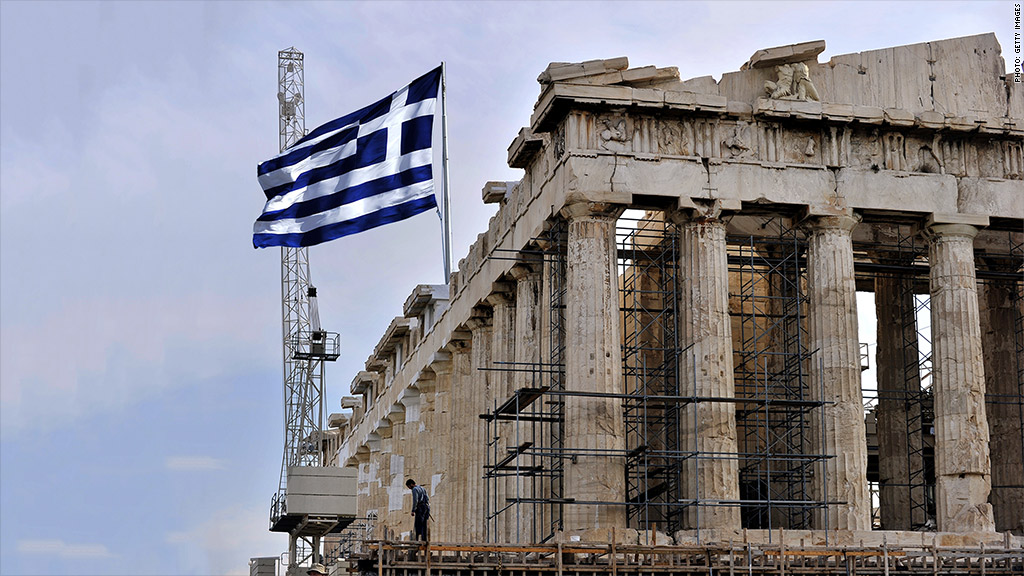
Greece is running out of time before its bailout program ends, and now appears set to ask for an extension.
The country's government will apply for an extension to its loan agreement on Thursday, official sources told CNN.
The Greeks are likely to ask for some relief from harsh austerity measures attached to the existing bailout.
"They are proposing to extend the bailout but they want to renegotiate all sorts of things that will go beyond what the EU will allow," said Christian Schulz, senior economist at Berenberg.
But he said the move is a "big psychological step" after weeks of fruitless talks between Greece and its lenders.
Related: Greek debt talks collapse
Greece needs to strike a deal soon or risks running out of money. The country's existing bailout program, which has delivered around €240 billion ($273.3 billion) in aid since 2010, ends on February 28.
Greece is showing fresh signs of stress. GDP figures published last week showed the economy shrank in the final quarter of 2014. Government tax revenues are fast depleting, down almost one billion euros below target last month. Greeks held off paying taxes before the election, hoping the government would scrap unpopular levies.

It comes as the ECB prepares to meet and discuss ongoing access to funding for Greek banks. Shut out of normal funding operations and facing dwindling deposits, Greek banks have been relying on emergency liquidity assistance, or ELA, to fund operations.
Earlier this month the ECB said that it would no longer accept junk-rated Greek government bonds as collateral for cheap central bank cash because it could not assume "a successful conclusion of the [bailout] program review."
Greek banks have had to lean more heavily on ELA, which is more expensive and also requires continuing ECB authorization.
Berenberg's Schulz said Greece currently has access to a maximum threshold of €65 billion under ELA. Greek banks have roughly €150 billion in deposits, he said, but these levels are falling.
ELA is a short-term fix that provides a bridging situation for banks that are not liquid but solvent.
"If there is no chance of a bailout extension then the ECB would also probably not extend the ELA," Schulz said, adding the withdrawal of the emergency funding source would be an "economic catastrophe" for Greece.
Related: 7 reasons a Grexit wouldn't be a total disaster
- CNN's Chris Liakos contributed to this report


